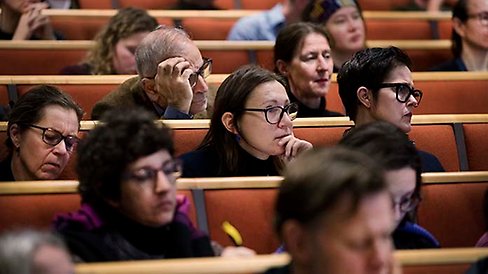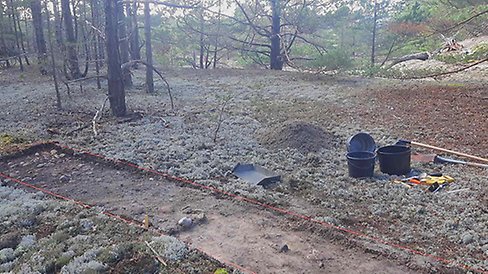She’s developing new methods for reforms in times of crisis
We need new methods for more effective and stable cooperation, so we can manage reforms at an international level in an uncertain world, according to Olena Shevtsova, researcher in public administration and a visiting researcher at Södertörn University.

“When the pandemic began in 2020, we saw how the world quickly adjusted to the new circumstances, not least through a shift towards more digital working and participation. A click on the computer was all we needed to cross a boundary. Society closed down, but we were united, and pluses were created from minuses,” she says.
However, the pandemic also created a great deal of uncertainty, an uncertainty that increased with Russia’s invasion of Ukraine earlier this year. For Olena Shevtsova, whose background is in public administration in Ukraine, it was clear that new methods were needed for different types of partnerships in the public sector, to enable work on reforms locally, nationally and internationally.
The basis for this new model, which she calls stakeholder partnership, is the practical work that should be regarded as a mechanism for the efficient use of resources.
“It is important to start from a practical perspective, as this provides many advantages in the long run. In periods of uncertainty, we don’t have the time to develop new methods and our resources are limited. Nor do we have the opportunity to build things up for the long term and plan for the future – so we have to be inventive, because we are facing something entirely new,” she says.
Previously, Shevtsova’s work included progress assessment of the UN's Sustainable Development Goals and new legislation on public statistics. Her previous experience in public service laid the foundation for the theory she then developed.
Stakeholder partnership – a mechanism
The concept is divided into three phases: initiation – implementation – validation. For implementing reforms, the most important phase is initiation; this is where the responsible authority is the most important stakeholder.
“This is the stakeholder that does the groundwork, the organisation that prepares the reform initiative. It’s also the one that garners support for it and finds the tools and models,” she says.
In practice, the method functions a little like a toolbox, an infrastructure to lean on so it is not necessary to reinvent the wheel time after time.
“For example, you could use a database that compiles drafts for legislation, road maps, guidelines and communication plans. This helps us achieve better results and introduce reforms more efficiently, in terms of both time and money,” she says.
The idea is that this platform can be adapted to local circumstances. Sweden and Ukraine are facing entirely different challenges, but everyone gains from cooperation and sharing their collected knowledge and experience.
Olena Shevtsova is at Södertörn University as a visiting researcher on a programme run by the Foundation for Baltic and East European Studies, supporting researchers at risk. She has been given the space and opportunity to compile the thoughts and ideas she has gathered over the years. The next stage is to publish her theories in the Academy of Public Administration’s publication series, with the aim of the method being utilised.
Page updated
16-02-2023





